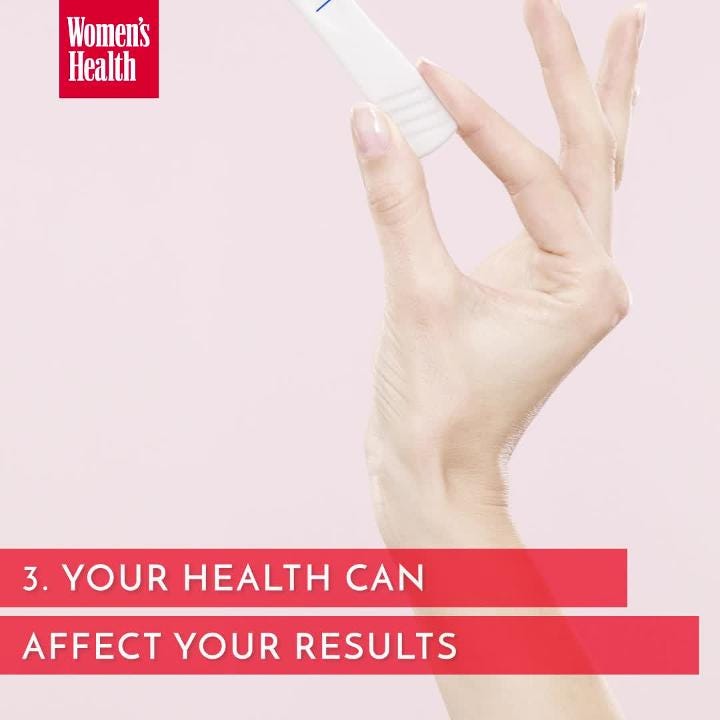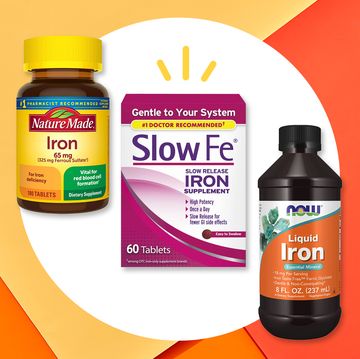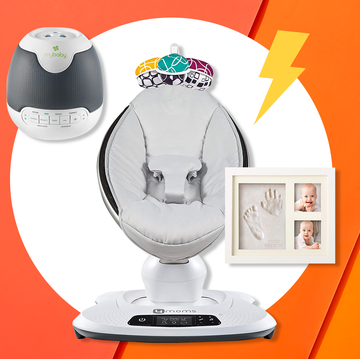Pregnancy calls for doctors visits, lifestyle changes, vitamins, and a ton of preparation (ahem, that nursery isn't going to create itself) before delivery. But, even prior to a positive pregnancy test, there are some things women should do to get ready to conceive.
“Ideally you and your partner want to allow yourself six months to go through a check list of pre-planning before actually becoming pregnant. This creates the foundation for a healthy pregnancy and healthy baby,” says Sherry Ross, M.D., ob-gyn and Women’s Health Expert at Providence Saint John’s Health Center in Santa Monica, California.
Of course, not all women can prepare for pregnancy. "For the 50 percent of women who have unplanned pregnancies, they will probably have an uncomplicated pregnancy, even without going through the prenatal checklist,” says Ross.
In a perfect world, though, all women and their signifiant others would abide by doc-recommended steps before carrying a child. So what exactly is the ideal way to prep? For couples who are actively trying, here are eight things women should to do before becoming a mom-to-be.
In order to touch base about general health, a chat and check up with a doctor is key. “Ideally, a healthy woman would see her provider at least four months prior to conception,” says Diana Ramos, M.D., MPH, board certified ob-gyn and co-chair of the National Preconception Health and Health Care Initiative (PCHHC), who recommends the future mom sees an ob-gyn, specifically. Ramos also notes this "well visit" should include a blood pressure, weight, and Pap smear checkup, "to ensure there are no underlying medical conditions you might not be aware of, like a thyroid [problem], anemia, etc.”
Any woman getting ready to make a baby should also be taking a multivitamin with folic acid. “This B-vitamin is crucial for reducing birth defects,” says Ramos. “Women need to be taking a multivitamin with folic acid at least three to four months before pregnancy.” Folic acid helps prevent issues with the spinal cord and brain.
Related: Nikki Reed Just Broke Her 'Month Of Silence' With This Badass Post About Postpartum Recovery
Growing a healthy baby means creating a nourishing environment where it can thrive. “All young adults should assess their health and lifestyle behaviors,” says Ramos. “Talk with a provider to manage, cut down, and stop unhealthy behaviors, such as smoking, drugs, and alcohol.”
In addition to eliminating these vices, Jill Hechtman, M.D., of Tampa Obstetrics recommends decreasing stress, getting more sleep, and limiting caffeine intake.
If you're trying to get pregnant, you should know these facts about pregnancy tests:
Staying in tip-top shape is important before getting pregnant. That means maintaining a healthy weight, exercising, and sticking to a balanced diet. And when it comes to food choices, there are a few that should be eliminated. “Avoid non-pasteurized foods, like cheese, cold cuts, raw foods,” says Ramos. Instead, stick to a Mediterranean diet. "It has been embraced by the medical community as the model of healthy living. Plant foods, fresh fruit, whole grains, fish, lean meats, unprocessed foods, and healthy fats are the highlights of this diet, which is perfect for the pre-pregnancy planning period." Ross also notes seeking out a nutritionist may be a helpful resource to guide future moms in the right diet direction.
(Kick-start your new, healthy routine with Women's Health's 12-Week Total-Body Transformation!)
While some women may seem (and feel) perfectly healthy, it’s important to run tests for long-term, under-the-radar illnesses. “You may not know you have a condition in the first place, but it is important that chronic diseases are being monitored by a health provider,” says Ramos. And if you are aware of an existing chronic condition, he suggests suggests seeing a doctor at least six months before conceiving. This includes checking for healthy weight, blood pressure, diabetes, and STIs such as gonorrhea, chlamydia, and syphilis.
Related: Pink Just Shared A Photo Of Her Kids That's Causing Major Drama On Instagram
History matters when it comes to health and a future family. “Women should get tested for genetic or inherited disorders if any family members have had a child born with birth defects, diabetes, seizure disorders, and developmental disabilities,” says Ross. “A thorough discussion about your family’s genetic history will ensure nothing can be passed onto to your baby. For example, if you or your partner is Jewish, you would need to have a Tay-Sachs test to see if you are a carrier. If you are a carrier of Tay-Sachs, your partner will also need to be tested since the baby is more at risk for the disease if both parents are carriers.”
Sharing medical history is vital, and expressing any worries you have can be helpful, too. “Your provider should go over concerns you may have, as well as discuss concerns they have that pertain to your pregnancy," says Hechtman. That includes your prior pregnancy history. “For example, if your baby's shoulders got stuck during delivery, you had a vaginal tear that extended to your rectum, a pre-term delivery, or any other issue that arose—it's important to address as it may change the way we manage this pregnancy.”
Related: Nikki Reed Just Broke Her 'Month Of Silence' With This Badass Post About Postpartum Recovery
As simple as it sounds, taking note of that time of the month will save you time and stress when planning conception. “Understanding when is the right time during your menstrual cycle to conceive is essential,” says Ross. Some numbers to remember: Ovulation typically occurs 14 days prior to getting your period, and sperm live for 72 hours. "The idea is to have the sperm waiting for the egg," says Ross. "Having intercourse on these days ensures that the sperm and egg are interfacing with hopes of an embryo being formed." He also suggests buying an ovulation kit and/or downloading the Maybe Baby app to help identify the fertile period of your cycle. "When the time comes to start trying, you'll be prepared."













